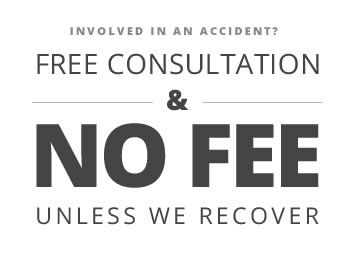Listen to this article:
The first thing to remember about workers’ compensation is that you are entitled to make your claim for any accidental injury. What exactly is an “accidental Injury” is clearly spelled out in the Workers’ Compensation Statutes, but our normal everyday definition will normally suffice. Even if the accident was your fault you are entitled to make the claim. Now if you did something on purpose – that’s a no-no and you will not recover. What we have been talking about the last few weeks is what happens when you are injured as a result of a compensable accident but in which another party was negligent and indeed caused your injury. That would enable you to file your compensation claim AND pursue a “third party” claim against the negligent party, (the third party). Yes, there are some duplicate recoveries that are barred by statute but there are enough advantages to pursue both.
As we have previously discussed once you have been injured in a compensable on the job accident and after you have reported it to your employer, (preferably in writing or in a form provided by your employer), your benefits will begin – even if you don’t file your own “employee claim form”. You will be directed to the employer’s medical provider, (through their insurance company), or you are entitled to go to your own doctor. All medical treatment, especially if we are talking surgeries or other expensive treatments, (MRI’s, CT Scans, etc.), need to be approved by the insurance company. In addition to the payment of these bills you are entitled to what is termed TT benefits, (“temporary total”). This is compensation for you not being able to work and the benefits are usually 2/3 of your average weekly wage. These start shortly after you are deemed to be unfit to work by your doctor. Again if you are treating with your own doctor it may well be necessary for your doctor to submit an “out of work” form to the insurance company. You would receive these benefits for as long as you are out of work because of injuries sustained in the accident. Now these are the basic benefits you are entitled to even if you don’t file your own employee claim form. If you recover from the accident with no residual disability or permanent injury that will conclude your workers’ compensation portion of your claim. But what about the third party claim.
Once your attorney has put the third party liability carrier on notice of the claim your attorney will correspond with the carrier as the lawyer would do in any normal tort claim. The value of that claim will be based on the severity of the accident, your injury, your medical bills, lost wages and your pain and suffering. That case will normally result in a recovery that is greater than the total of the medical bills and TT paid by the worker’s compensation carrier, because of the pain and suffering portion of the claim – but here’s the catch.
Before your attorney settles your third party claim the attorney must put the workers’ compensation insurer on notice that a third party claim has been successfully pursued, before any releases are signed and absolutely before any distribution of funds from that third party recovery are made. The reason for this is that the workers’ compensation insurer is entitled to a payment that will represent 2/3 of all payments made to you in your worker compensation claim. This assures that you are not recovering twice for exactly the same things. Thus, that amount will by necessity be paid from your third party recovery. It is only fair because you now have no medical bills to repay out of your settlement and you did already receive 2/3 of your lost wages. Therefore, other than attorney fees and costs you will pocket the rest of the proceeds which, like workers’ compensation benefits are not taxable. So you have had one accident, made two claims, and most importantly received monetary benefits from both claims.
But what happens when you have sustained permanent injury in the accident? That’s when you need to file that employee claim form and that is likely when you need to retain an attorney who is familiar with BOTH workers’ compensation and third party practice – and that’s when it all gets complicated. We will discuss that next time.


